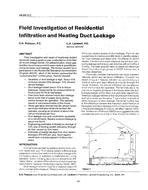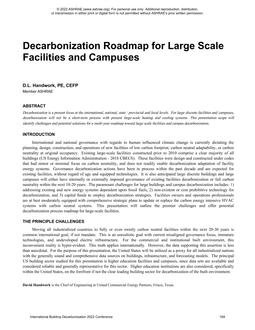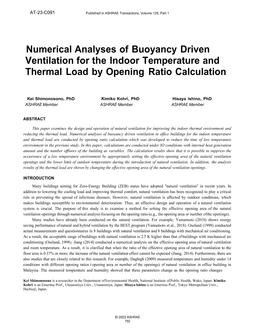
VA-89-05-3 — Field Investigation of Residential Infiltration and Heating Duct Leakage
Field investigation and repair of residential ducted forced-air heating systems was conducted on more than 20 recent vintage homes. Fan pressurization, tracer gas, and flow hood measurements were made to quantify preand post-repair duct leakage. The homes studied were participants in the Residential Standards Demonstration Program (RSDP). Most of the homes represented the “current practice” control group. Results showed:
- Variability of duct leakage is high. About 10% of homes showed little leakage; 10% showed severe leakage.
- Duct leakage added about 10% to house leakiness, measured by fan pressurization (4 Pa ELA and 50 Pa air exchange).
- Flow hood tests showed return duct leakage about twice that of supply ducts during normal furnace fan operation. This typically results in net pressurization of the house.
- Tracer gas tests showed that fan-driven losses dominate infiltration while the furnace fan operates, causing an increase of about one-half air exchange per hour.
- Duct leakage was only moderately repairable on a retrofit basis. Repairs reduced leakage by about one fourth.
- Engineering estimates indicated an average of 12% loss of heating system efficiency through air loss caused by duct leaks.
- Estimates of energy savings from duct repairs averaged 375 kWh per year. Such repairs would have a simple payback of about four years.
Citation: Symposium, ASHRAE Trans., vol. 95, pt. 2
Product Details
- Published:
- 1989
- Number of Pages:
- 9
- File Size:
- 1 file , 1.1 MB
- Product Code(s):
- D-27225


